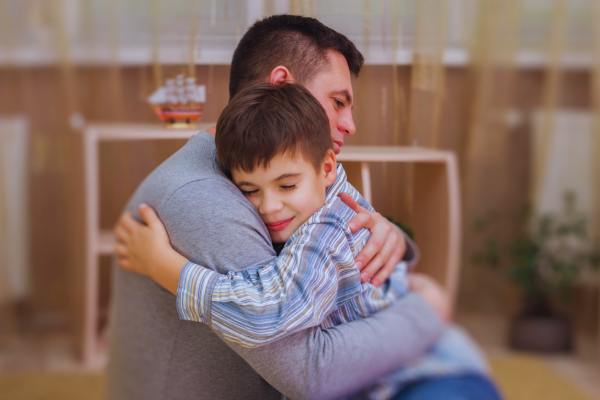
8 Ways To Help Your Kids Return To School After A Loss
Experiencing the loss of a loved one — whether a grandparent, parent, sibling, or even a close family friend — is deeply painful for anyone, but for children, grief can be particularly confusing and overwhelming. Returning to school after such a loss adds an additional layer of stress. Kids may struggle with focusing, socializing, and handling emotions while trying to adjust to normal routines.
As parents and caregivers, you play a critical role in supporting them through this transition. Here are eight compassionate and practical ways to help your kids return to school after a loss.
- Communicate with the School
Before your child returns, reach out to their teacher, counselor, and school administrators to let them know what has happened. Provide some context about the relationship your child had with the deceased, how your child is coping, and any specific concerns you have.
This information allows school staff to offer appropriate support, adjust expectations temporarily, and watch for any signs that your child might need extra help. Having a few trusted adults at school who are aware of the situation can make your child feel safer and more understood.
- Prepare Your Child Emotionally
Before the first day back, have an open conversation about what they might expect. Acknowledge that school will feel different and that it’s normal to have complicated emotions such as sadness, anger, anxiety, and even guilt.
Let them know it’s okay to take breaks if they feel overwhelmed, and that they can always come to you or a trusted adult if they need to talk. Preparing them in advance gives them a sense of control and helps reduce anxiety about the unknown.
- Give Permission to Feel … and Not Feel
Children often wonder if they’re “supposed to” feel a certain way. They may think they should be crying all the time or, conversely, feel guilty if they laugh with friends and enjoy themselves.
Reassure your child that every feeling is valid. It’s okay to cry. It’s okay to laugh. It’s okay to feel nothing at all sometimes. Grief is not a straight line, and emotions can change from moment to moment. Let them know that all their feelings are natural and acceptable.
- Establish Routines, But Allow Flexibility
Structure and routine can be comforting to grieving children, providing a sense of normalcy when their world feels upside down. Stick to familiar schedules for waking, meals, homework, and bedtime as much as possible.
However, also try to build in flexibility. Your child may need extra time getting ready in the morning, or they may have days when concentrating on homework is particularly difficult. Offering grace and understanding rather than strict adherence to schedules supports emotional healing while providing stability.
- Create a Coping Plan Together
Help your child brainstorm coping strategies for difficult moments during the school day. These might include:
- Going to the school counselor or nurse for a quiet break
- Carrying a small memento (like a photo or note) for comfort
- Practicing deep breathing or mindfulness exercises
- Having a trusted friend or teacher they can talk to if needed
By building a plan together, you empower your child to manage their feelings proactively rather than being caught off-guard by them.
- Encourage Gentle Social Reentry
Social interactions can be challenging after a loss. Friends and classmates may not know what to say or may unintentionally say hurtful things. Some kids might want to talk about their grief; others might prefer to keep it private.
Prepare your child for different reactions and role-play possible conversations if they feel up to it. Encourage them to decide in advance how much they want to share. For instance, they might simply say, “Thank you” when someone expresses sympathy, or they might choose to tell a close friend more.
Also, understand that your child may need downtime after school to decompress from social pressures.
- Monitor for Signs of Struggle
While some regression in school performance, mood swings, or changes in behavior are normal after a loss, watch for signs that your child may need extra support, such as:
- Prolonged sadness or withdrawal
- Increased anxiety or fearfulness
- Difficulty sleeping or changes in appetite
- Declining grades or disinterest in previously enjoyed activities
- Physical complaints like headaches or stomachaches without medical cause
If you notice these signs persisting for more than a few weeks, consider seeking help from a grief counselor, therapist, or support group specialized in children’s grief.
- Model Healthy Grieving
Children look to adults for cues on how to manage emotions. Model healthy grieving by expressing your own feelings appropriately and showing that it’s okay to talk about the person who has died.
Share memories, acknowledge tough days, and practice self-care openly. When kids see that grieving includes sadness and moments of happiness, they learn that healing doesn’t mean forgetting, it means finding ways to carry love and memories forward.
Returning to school after a loss is never easy for a child, but with compassionate preparation, open communication, and ongoing support, you can help make the transition gentler and more manageable. Every child grieves in their own way and at their own pace. By being patient, observant, and emotionally available, you provide the steady foundation they need to navigate both their grief and their return to everyday life.
Loss changes lives, but with care and support, it doesn’t have to define them. Helping your child through this challenging chapter will not only support their academic success but also strengthen their resilience for the future.
Are you seeking other grief resources? Be sure to visit our website or call us for more information at 215-927-5800.





